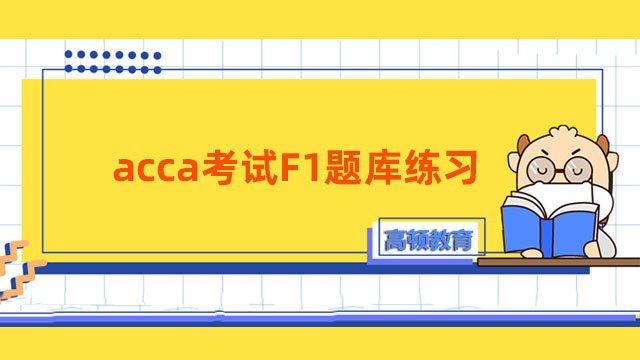2011年ACCA考试F4模拟试题(9)
8 Anticipatory breach occurs where, prior to the date on which performance is due, it becomes apparent that one of the parties will not perform a substantial part of their obligations under the contract or will commit a fundamental breach of contract. The Convention distinguishes between those cases in which the other party may suspend his own performance of the contract but the contract remains in existence awaiting future events and those cases in which he may declare the contract avoided.
Thus as regards the first situation Article 71 provides that a party may suspend performance of his obligations if, after the conclusion of the contract but before it is due to be performed, it becomes apparent that the other party will not perform a substantial part of his obligations as a result of:
(a) a serious deficiency in his ability to perform or in his creditworthiness; or
(b) his conduct in preparing to perform or in performing the contract.
If the circumstances only become apparent after the seller has despatched the goods they may prevent them from being handed over to the buyer, even if the buyer holds a document, such as a Bill of Lading, which entitles the buyer to collect the goods. The party suspending the performance of the contract must immediately give notice of the suspension to the other party and must if that part gives adequate assurance of their future performance then the contract must continue. (Article 71)
Alternatively, under Article 72, if prior to the date for performance of the contract it is clear that one of the parties will commit a fundamental breach of contract, the other party may declare the contract avoided. For a breach of contract to be fundamental, it must result in such detriment to the other party as substantially to deprive him of what they were entitled to expect under the contract, unless the result was neither foreseen by the party in breach nor foreseeable by a reasonable person of the same kind in the same circumstances.
If time allows, the party intending to avoid the contract must give reasonable notice to the other party in order to permit him to provide adequate assurance of his performance. However, that requirement does not apply where the other party has expressly stated that that they will not perform their obligations under the contract.
Under the facts of the problem scenario it is apparent that Bo has performed an anticipatory breach of his contract with Arti. Arti can suspend performance of the contract and see if Bo changes his mind. Even if he does change his mind, Bo will not be able to claim the acid in spite of holding the Bill of Lading. However, as a result of Bo‘s express repudiation of the contract Arti is entitled to avoid the contract immediately if he chooses and sue Bo for damages.
9 This question requires an analysis of the doctrine of corporate opportunity and the rules relating to directors‘ duties. Section 178 of the Companies Act (CA) 2006 places directors’ duties on a statutory basis, and although s.170 provides that the new statement of duties replaces the old common law rules and equitable principles, it nonetheless expressly provides that the duties now stated in the Act are to be interpreted and applied in the same way as those rules and principles were. Section 178 specifically preserves the existing civil consequences of breach of any of the general duties, so the remedies for breach of the newly stated general duties will be exactly the same as those that were available following a breach of the equitable principles and common law rules that the general duties replace. Section 178(2) specifically provides that the directors‘ duties are enforceable in the same way as any other fiduciary duty owed to a company by its directors and remedies available may include:
(i) damages or compensation where the company has suffered loss;
(ii) restoration of the company‘s property;
(iii) an account of profits made by the director; and
(iv) rescission of a contract where the director failed to disclose an interest.
【整理版】ACCA各科目历年真题
真题高频考点,刷题全靠这份资料
acca全科学习思维导图
梳理核心考点,一图看懂全部章节
2023年acca考纲解析
覆盖科目重难点,备考按照计划走
- acca考试怎么搭配科目?
-
建议优先选择相关联的科目进行搭配报考,这样可以提高备考效率,减轻备考压力,1、F1-F4:为随时机考科目,难度较低,这里可以自行随意选择考试顺序。2、F5-F9:如果你的工作的和财务会计或者审计有关、或者你比较擅长财务和审计的话,推荐先考F7和F8。你可以选择一起考ACCA考试科目F7和F8或者先考F7(8)再考F8(7),这就要取决你一次想考几门。3、P阶段:选修科目中,建议企业首选AFM!第二部分科目进行选择,如果AA和SBR掌握学生更好,可以通过选择AAA,如果SBL掌握的好,可以自己选择APM。
- acca一共几门几年考完?
-
acca一共有15门考试科目,其中有必修科目和选修科目,考生需要考完13门科目才能拿下证书。
- acca一年考几次?
-
acca一年有4次考试,分别是3月、6月、9月和12月,分季机考科目是采取的这类四个考季的模式,而随时机考则是没有这方面的时间规定限制,可以随报随考。
- acca的含金量如何?
-
ACCA证书的含金量是比较高的,从就业、能力提升、全球认可等角度来说,都是比较有优势的证书,其含金量主要表现在以下几个方面:1、国际化,认可度高;2、岗位多,就业前景好;3、缺口大,人才激励。
-
acca考试F1题库练习,考生必备! 2023-03-20
-
acca2022真题下载流程介绍,必做考前模考题! 2023-02-24
-
ACCA试卷出题形式?ACCA考试最快多久能通过? 2021-07-24
-
ACCA官方样题 F4(ENG) F8 2021-01-07
-
ACCA考试P1-P3模拟题及解析9 2021-01-07
-
四大会计事务所2017年终精华会评(中) 2018-02-01
-
2016年ACCA F1模拟练习题及答案 2016-02-29
-
2016年ACCA F8每日一练:Professional ethics 2016-01-26
-
2016ACCA考试F8自测题:Corporate governance 2016-01-26
-
关于ACCA考试P7中的专业和道德问题 2015-11-24
-
ACCA P5精选模拟题之战略性绩效考核 2015-10-10
-
ACCA F9模拟测试题之投资评估 2015-10-10
-
ACCA P3精选练习题之战略管理和组织变革 2015-10-10
-
2014年ACCA《公司法与商法》真题及答案七 2015-07-20
-
2014年ACCA《公司法与商法》真题及答案七 2015-07-20
-
2014年ACCA《公司法与商法》真题及答案六 2015-07-20
-
2014年ACCA《公司法与商法》真题及答案五 2015-07-20
-
2014年ACCA《公司法与商法》真题及答案四 2015-07-20
-
2014年ACCA《公司法与商法》真题及答案三 2015-07-20
-
2014年ACCA《公司法与商法》真题及答案二 2015-07-20
-
2014年ACCA《公司法与商法》真题及答案一 2015-07-20
-
2014年ACCA《公司法与商法》真题及答案八 2015-07-20
-
2015年ACCA考试模拟题 2015-06-26
-
2015年ACCA考试精选测试题汇总 2015-06-19
-
2015年ACCA考试《财务成本管理》模拟题汇总 2015-06-18
-
2015年ACCA考试F8模拟试题:Financial Management 2015-06-18
-
ACCA考试2015年《财务成本管理》模拟练习汇总 2015-04-27
-
ACCA考试2015年《财务成本管理》模拟练习5 2015-04-27
-
ACCA考试2015年《财务成本管理》模拟练习4 2015-04-27
 更多服务
更多服务

















